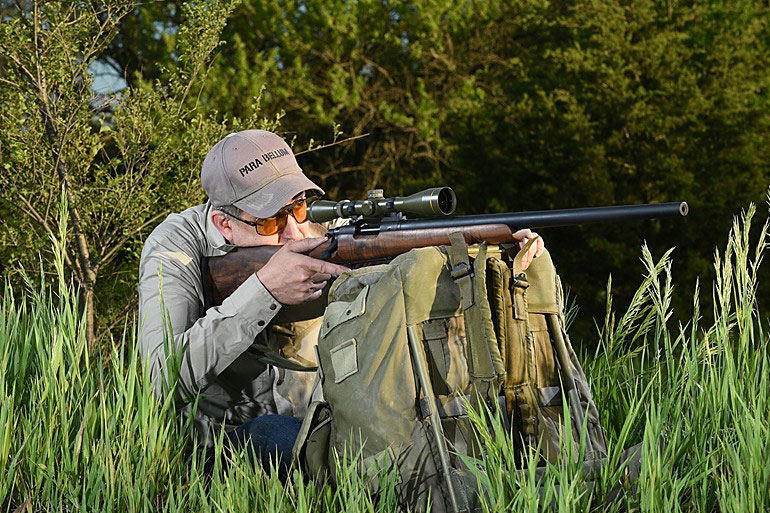Our November Round Robin Blog Hop is asking us how do we help our readers feel like they are there, not just on the scene but feeling like they are part of it.
 Poets seem to get this instinctively – when was the last time you read or heard a poem that overburdened you with detail and still made you feel what the writer intends you to feel? And yet authors of prose often do it way too often. Well known, best-selling authors often get away with it just because of their previous fame, but those of us who walk (or write) in their shadows can lose readers if we indulge ourselves. Some authors I once loved in earlier books, even best-selling authors, have become so enamored of their description, or worse, repetitive, that I’ve stopped reading their work entirely. Some do laudably exhaustive research to get their stories right, but then forget the golden rule of description in favor of including ALL the details of that research. The reader is not so in love with too much detail, nor are they enraptured by the research that should have only informed the scene setting, and this is a quick way to lose readers, even ones who love your characters, your premise and your genre.
Poets seem to get this instinctively – when was the last time you read or heard a poem that overburdened you with detail and still made you feel what the writer intends you to feel? And yet authors of prose often do it way too often. Well known, best-selling authors often get away with it just because of their previous fame, but those of us who walk (or write) in their shadows can lose readers if we indulge ourselves. Some authors I once loved in earlier books, even best-selling authors, have become so enamored of their description, or worse, repetitive, that I’ve stopped reading their work entirely. Some do laudably exhaustive research to get their stories right, but then forget the golden rule of description in favor of including ALL the details of that research. The reader is not so in love with too much detail, nor are they enraptured by the research that should have only informed the scene setting, and this is a quick way to lose readers, even ones who love your characters, your premise and your genre.
XX
 So, what is this golden rule? LESS IS BETTER!
So, what is this golden rule? LESS IS BETTER!
XX
Years ago, when I was starting out, a many-times-published author gave me a hint about choosing whose POV to show any scene from. She said always ask yourself “who has the most to lose?” It is remarkably helpful in POV choices, but it’s equally applicable to scene setting. Which details are the most important? What detail is going to show up later as a critical piece? Which detail is going to make the reader feel like they were right there in the story, not watching it on the news? Those are the details we need to include. The rest are just the author, in love with their words and getting carried away.
XX
 Gone With the Wind, which is considered a classic, might never get published today for a variety of reasons we don’t need to discuss here. But the opening line of the book: "Scarlett O'Hara was not beautiful, but men seldom realized it when caught by her charm as the Tarleton twins were." is classic and a perfect example of less is better. Rather than describe Scarlett in detail we hear only that she’s not beautiful, but she has charm. A lot of it, if the Tarleton twins are a reliable example. Unfortunately, that pithy opening is followed by several pages of numbing detail. Of course, when that book was released, the list of new books out each year was far, far less than today. Today we live in a world of soundbites where everyone wants everything yesterday. We can’t spend a whole chapter describing the world we are creating. We need to grab the reader’s attention in those first few sentences and before the end of that first page. Otherwise, we don’t have a new reader.
Gone With the Wind, which is considered a classic, might never get published today for a variety of reasons we don’t need to discuss here. But the opening line of the book: "Scarlett O'Hara was not beautiful, but men seldom realized it when caught by her charm as the Tarleton twins were." is classic and a perfect example of less is better. Rather than describe Scarlett in detail we hear only that she’s not beautiful, but she has charm. A lot of it, if the Tarleton twins are a reliable example. Unfortunately, that pithy opening is followed by several pages of numbing detail. Of course, when that book was released, the list of new books out each year was far, far less than today. Today we live in a world of soundbites where everyone wants everything yesterday. We can’t spend a whole chapter describing the world we are creating. We need to grab the reader’s attention in those first few sentences and before the end of that first page. Otherwise, we don’t have a new reader.
XX
But even once we’ve got our reader turning pages, we can still bore them with tedious detail. I’ll create two samples here to illustrate  what I’m getting at:
what I’m getting at:
XX
The new and improved Tabitha:
xx
1) Tabitha pulled the new dress she’d purchased at the mall when she went shopping with her best friend over her head and snugged it down, reached back to zip the back closed. She preened in front of full-length mirror her father had recently installed behind her door. Too bad dresses didn’t come with designer labels like sport clothes did. It would have been nice if everyone knew just how extravagant her purchase had been. It might boost her prestige.
She especially liked the careful detailing around the neck edge that matched the hem, and the color which reflected the blue of her eyes. Long inserts ran from the neck, down past her waist to flare into a deliciously swishing skirt, and the little cap sleeves added to the charm. The best part was how it showed off her slender arms and sexy curves. Curves she’d worked long and hard to achieve with a rigorous diet and way too many sweaty hours in the gym.
“Oh, Sweetie. It’s beautiful,” her mother said entering the room and coming to stand behind her where she could run her fingers over the soft fabric that caressed Tabitha’s skin.
 XX
XX
2) Tabitha slipped the expensive new dress over her head, and hurried over to preen in front of the full-length mirror. Her only regret at the cost was that dresses didn’t come with designer labels like sport clothes that announced their lineage and value.
The color reflected the blue of her eyes, and the best part? It showed off the curves she’d worked so hard to achieve with a starvation diet and hours in the gym.
She felt beautiful. For the first time in her life.
XX
Which example most appeals to a reader eager to get to the action? We learn that Tabitha spent a fortune on the dress and clearly hopes to impress people. We know she worked hard for her current shape and that she’s beautiful, in both options, but the second option does so with less baggage to bog it down.
XX
Or how about Bob’s Revenge?
 1) Bob couldn’t wait until work was over. Evening came too soon this time of year. But finally, it arrived, and he hurried to punch his time-card and be on his way. Careful not to break any speed laws and attract undue attention, he drove up to a lookout he’d scouted a few weeks before. He parked his beat-up pickup truck where it wouldn’t be spotted by anyone passing by and stepped down. Going around to the rear and dropping the tailgate, he opened his gun case and studied his options, only barely noticing that there was, thankfully, no wind.
1) Bob couldn’t wait until work was over. Evening came too soon this time of year. But finally, it arrived, and he hurried to punch his time-card and be on his way. Careful not to break any speed laws and attract undue attention, he drove up to a lookout he’d scouted a few weeks before. He parked his beat-up pickup truck where it wouldn’t be spotted by anyone passing by and stepped down. Going around to the rear and dropping the tailgate, he opened his gun case and studied his options, only barely noticing that there was, thankfully, no wind.
The oldest rifle was the one his parents had given him when he turned twelve and they decided he was old enough to hunt with his brothers. The next was the first one he’d purchased himself with money he’d earned hauling and unloading pallets for Old Man Wilson at the local hardware store. He’d lost count of the numbers of tools and hanks of rope, boxes of nails and array of fishing lures he’d hung on boards or stacked on shelves to earn that rifle.
Two more had come along as money allowed in between putting shoes on baby feet, buying ever  bigger cars to accommodate the growing family and paying his mortgage. But he was free of all that now. Cindy had left him for someone else. Good riddance. She’d been drag from the start and the only reason they’d married at all was her father standing on Bob’s childhood porch with his own shotgun in his hands. Bob had gotten his precious baby pregnant and he was going to do right by her. Well, that was a thing of the past. Now all he had to do was unburden himself of the shockingly high child support and alimony payments.
bigger cars to accommodate the growing family and paying his mortgage. But he was free of all that now. Cindy had left him for someone else. Good riddance. She’d been drag from the start and the only reason they’d married at all was her father standing on Bob’s childhood porch with his own shotgun in his hands. Bob had gotten his precious baby pregnant and he was going to do right by her. Well, that was a thing of the past. Now all he had to do was unburden himself of the shockingly high child support and alimony payments.
Bob selected the newest gun. One he’d gone out on a limb for, but that had the capabilities of the best sniper rifles out there. He’d be able to see the salt shaker on her kitchen table with this new baby.
XX
2) It was a calm evening with just the right amount of light when he parked at the lookout he’d scouted, in a spot he wasn’t likely to be noticed by anyone passing by. His heart raced as he dropped the tailgate to open his gun case. His eyes skimmed quickly past the oldest rifle his parents had given him when he turned twelve and all the ones’ he’d purchased for himself in between putting shoes on baby feet, and  buying ever bigger cars to accommodate a growing family.
buying ever bigger cars to accommodate a growing family.
Cindy had left him for someone else. He should just say good riddance and move on. She’d been drag from the start. Except now he had to unburden himself of the shockingly high alimony and child support payments that would continue to burden him for years.
He reached for the newest gun. He’d be able to see the saltshaker on her fancy new kitchen table with this baby.
XX
All the extra detail is certainly explanatory about Bob, his history and his intentions, but winnowing out all the details that don’t impact his current course of action gets us to that action sooner and keeps the reader more firmly engaged.
XX
 So, my bottom line? Less is better. Your setting should be a SKETCH not a photograph. Pick the details that you absolutely must have for the reader to know what’s happening or about to happen. Toss the rest even when it sounds lovely. Your scene is a sketch, not a photograph. I could have added more senses. To the second, I did. Bob’s heart is pounding, there’s no wind and just enough light. These are important for his mission. The history of his gun purchases and why he married Cindy in the first place can, if needed, be sprinkled in later. In the first, instead of Tabitha’s mother telling her and the reader she’s beautiful (mothers would say that anyway) I have Tabitha FEELING beautiful, and that emotion is going to make the reader care more than her mother’s praise.
So, my bottom line? Less is better. Your setting should be a SKETCH not a photograph. Pick the details that you absolutely must have for the reader to know what’s happening or about to happen. Toss the rest even when it sounds lovely. Your scene is a sketch, not a photograph. I could have added more senses. To the second, I did. Bob’s heart is pounding, there’s no wind and just enough light. These are important for his mission. The history of his gun purchases and why he married Cindy in the first place can, if needed, be sprinkled in later. In the first, instead of Tabitha’s mother telling her and the reader she’s beautiful (mothers would say that anyway) I have Tabitha FEELING beautiful, and that emotion is going to make the reader care more than her mother’s praise.
XX
 So, now it’s time to hop on over and see how other authors choose to show their settings.
So, now it’s time to hop on over and see how other authors choose to show their settings.
XX
Dr. Bob Rich
Diane Bator
Anne Stenhouse
Connie Vines
Helena Fairfax